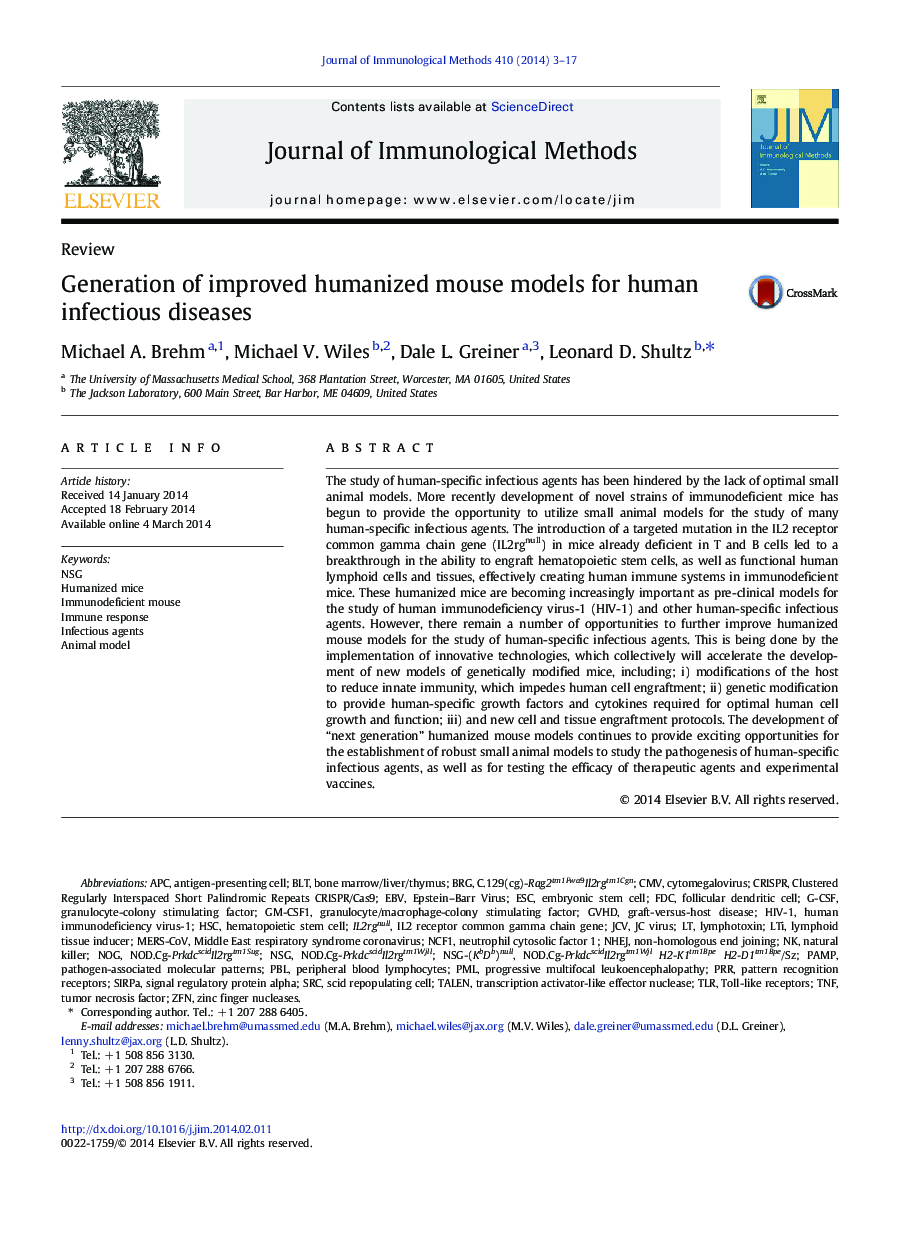| کد مقاله | کد نشریه | سال انتشار | مقاله انگلیسی | نسخه تمام متن |
|---|---|---|---|---|
| 2088139 | 1545699 | 2014 | 15 صفحه PDF | دانلود رایگان |
• Humanized mice support pre-clinical analyses of human-specific infectious agents.
• Novel technologies are generating new humanized mouse models.
• Innovations to improve human immune responses in humanized mice are becoming available.
The study of human-specific infectious agents has been hindered by the lack of optimal small animal models. More recently development of novel strains of immunodeficient mice has begun to provide the opportunity to utilize small animal models for the study of many human-specific infectious agents. The introduction of a targeted mutation in the IL2 receptor common gamma chain gene (IL2rgnull) in mice already deficient in T and B cells led to a breakthrough in the ability to engraft hematopoietic stem cells, as well as functional human lymphoid cells and tissues, effectively creating human immune systems in immunodeficient mice. These humanized mice are becoming increasingly important as pre-clinical models for the study of human immunodeficiency virus-1 (HIV-1) and other human-specific infectious agents. However, there remain a number of opportunities to further improve humanized mouse models for the study of human-specific infectious agents. This is being done by the implementation of innovative technologies, which collectively will accelerate the development of new models of genetically modified mice, including; i) modifications of the host to reduce innate immunity, which impedes human cell engraftment; ii) genetic modification to provide human-specific growth factors and cytokines required for optimal human cell growth and function; iii) and new cell and tissue engraftment protocols. The development of “next generation” humanized mouse models continues to provide exciting opportunities for the establishment of robust small animal models to study the pathogenesis of human-specific infectious agents, as well as for testing the efficacy of therapeutic agents and experimental vaccines.
Journal: Journal of Immunological Methods - Volume 410, August 2014, Pages 3–17
